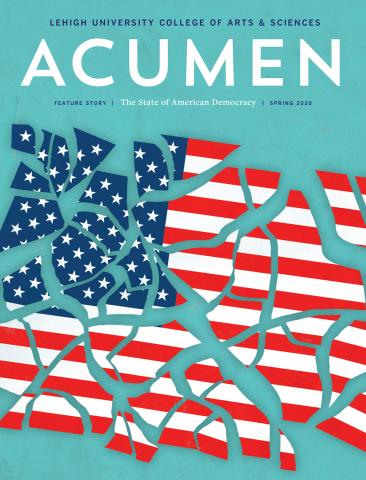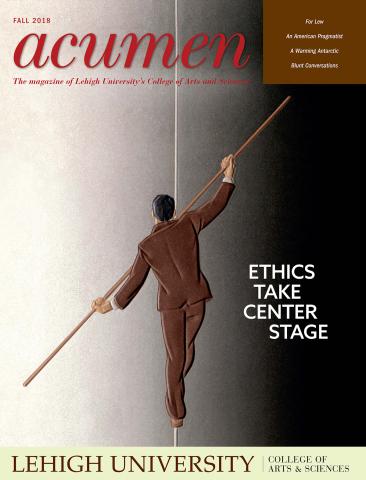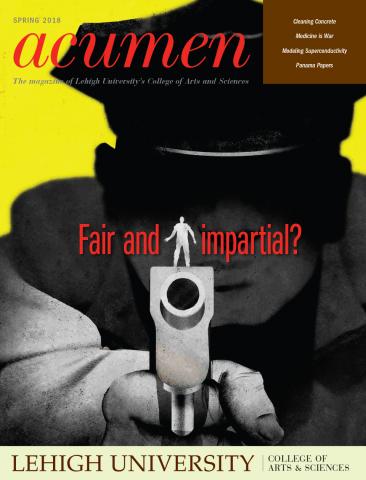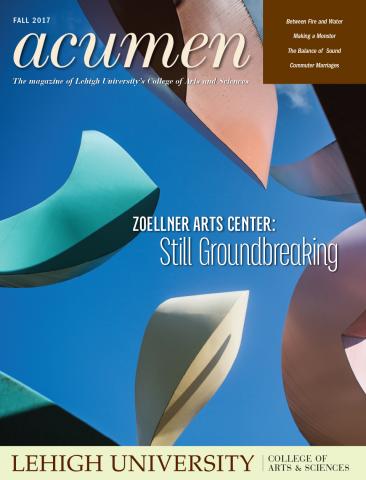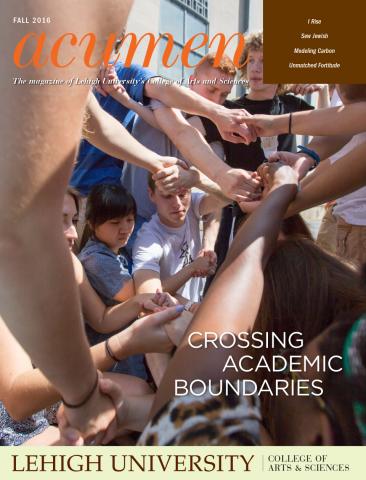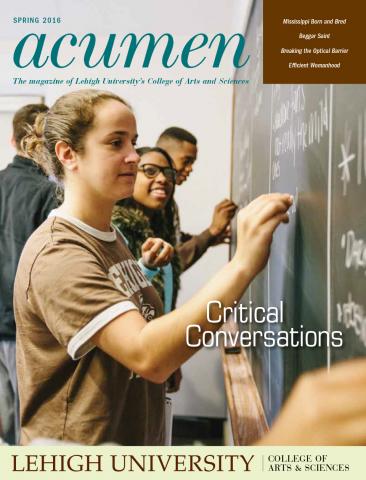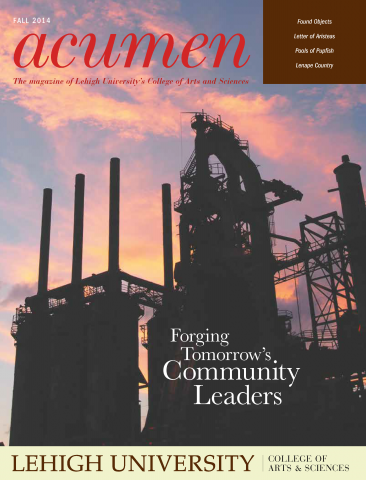
Five weeks into his senior year of high school, Craig Franklin ’87 decided he wanted to be an engineer. However, in order to apply to engineering schools, he needed either physics or chemistry as a part of his high school curriculum. So, Franklin transferred out of AP Latin and into physics and caught up on the initial five weeks of physics that he had missed.
He also decided that he wanted to be in a five-year program where you earn a Bachelor of Arts degree in an arts and science major and a Bachelor of Science degree in an engineering major.
“I wanted to get an engineering degree in computer engineering but did not have a preference on the arts major,” Franklin explained.
He started to look at colleges that had an arts-engineering program. Browsing through Barron’s Catalog of Colleges, he came across Lehigh University in Bethlehem, Pa. Lehigh had an arts-engineering program and was listed as “highly competitive.” He added Lehigh to the list.
Franklin was accepted to Lehigh, Vanderbilt and Knox College. He visited Lehigh in the middle of April and thought the campus was beautiful.
“Lehigh in springtime is a very pretty place. I stayed in one of the dorms (Dravo), attended a physics class and toured the campus,” Franklin said. “I confirmed that at least one person had completed the arts-engineering program. Based upon the campus visit and the proven viability of the arts-engineering program, I selected Lehigh.”
Franklin also became a classics minor after taking a course in Greek mythology and enjoying it.
“I then took a course in religion studies (RS 117 Religions of Japan) and really enjoyed it. So I took more religion studies courses and declared a religion studies minor,” said Franklin. “After two semesters of religion studies courses, I decided to change my religion studies minor to a major and was accepted into the honors program for religion studies. I ended up writing a senior thesis entitled Action Without Action: Wu Wei in Third-Century BCE Chinese Philosophy. I submitted my thesis for consideration of the Williams Prize and placed third.”
The extracurricular activities Franklin enjoyed most were being part of the fencing club, known as the Cut & Thrust Society, and working as a student consultant for the Computing Center, helping students debug their computer programs and using personal computers (which were a new thing at that time).
Upon graduation, Franklin started working at Sparta, Inc., developing system architectures and applications for ballistic missile defense as a part of the Star Wars program. While at Sparta, he got involved in computer security, performing penetration tests for national laboratories run by the Department of Energy. He then got involved in system integration for different intelligence agencies and ended up doing product development for real-time process control. When President Clinton remolded the Star Wars program back into its Ballistic Missile Defense origins and downsized the program, he moved to Viggen Corporation as its chief systems engineer, developing a distributed real-time simulation system to test new emerging transportation technologies.
“I built up a business area in systems engineering and became the vice president of systems engineering. Viggen Corporation was acquired by Iteris, and I transitioned to Iteris, advancing to the role of assistant vice president for traveler information,” Franklin said. “In May of 2000, I moved to Trichord, Inc. to become its president and apply technology to transportation systems.
“I recommend Lehigh to students who have an interest in a combination of engineering, business and arts and sciences,” Franklin said. “Lehigh presents multiple areas of study and lets students sample different types of courses before declaring a major. You have the opportunity to change your mind without adversely affecting your college career.”
He added that the university has an underappreciated gem in the religion studies department.
“The department has grown over the years, and I believe it is one of the premier undergraduate Religion Studies program around,” he said. “If you want to pursue religion studies at a graduate level, l recommend Lehigh’s program because it provides a strong, broad foundation in the field and presents opportunities for more advanced research and scholarship as an undergraduate.”
Franklin also believes that a religion studies degree augments a business degree and/or an engineering degree by educating people about the culture, history and religion of other countries.
“With an understanding of other people’s religious traditions, Lehigh graduates can better interact and work in foreign countries,” he said.
Working with the religion studies department, Franklin is helping to develop an alumni advisory group that can inform students on the advantages and benefits of a religion studies degree.
“This work is important because it is cross disciplinary in its scope, emphasizing how religion studies can augment a person’s skill set and knowledge in other fields of study,” he said.
Franklin received the alumni award for the Class of 1987 during a reunion in 2017 for the work that he continues to do with Lehigh in supporting the Marching 97 band, the religion studies department and the Lehigh Club of D.C.
With his wife, Kathy ’93, and his father-in-law, Joseph Snyder ’65, Franklin is active with the university’s band. The family attends all the home football games and enjoys the performances of the Marching 97.
“While tailgating in 2010, we thought that the band could use a booster club to help support their activities,” Franklin said. “Kathy commented, ‘Craig, you are good at talking to people and organizing meetings and events. You should be president of the Marching 97 Booster Club, and we will help on the back office side.’
“So, we formed the Marching 97 Booster Club with around 27 members in its first year,” he said. “Now in its eighth year, the booster club has over 100 members and provides an average of an additional $10K per year for the marching band. Around 2013, Kathy and I provided the lead gift to start an endowment fund for the Marching 97. Our goal is an endowment of $100K. To date, we have raised over $50K of the $100K goal, and the Marching 97 has begun to receive funding from the endowment fund.”






















